Search Images
Browse Content (p. 1278)
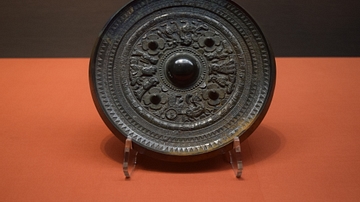
Image
Chinese Bronze Mirror
Engraved Chinese bronze mirror with a deity and horse carriage design. From the 4th-5th century CE Samitatakarazuka Tumulus, Japan. From 2nd-3rd century CE China. Important Cultural Property. (Tokyo National Museum)
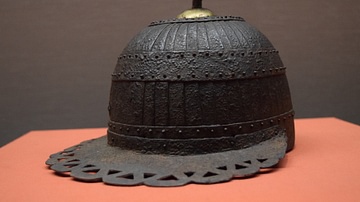
Image
Japanese Visored Helmet
A bronze visored helmet with gilt decoration. From Nihonmatsuyama Tumulus, Matsuokayoshinozakai, Eiheiji-cho, Fukui, Japan. Kofun Period, 5th century CE. (Tokyo National Museum)
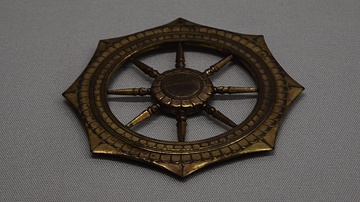
Image
Japanese Dharma Wheel
A gilt bronze dharma wheel used in Buddhist rituals. 13th century CE. (Tokyo National Museum)
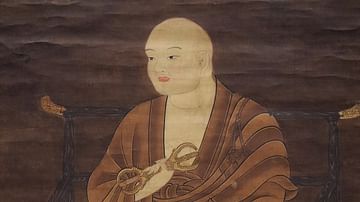
Image
Kukai Silk Portrait
A painted silk portrait of Kukai or Kobo Daishi (774-835 CE) who was a scholar, poet, and monk who founded Shingon Buddhism in Japan. 14th century CE. (Tokyo National Museum)
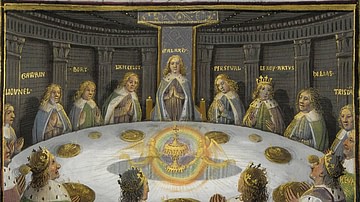
Image
Knights of the Round Table
A 1475 CE depiction of the knights of the Round Table from Arthurian legend. Here they receive a vision of the Holy Grail. (Evrard d'Espinques, from folio 610v in Bibliothèque Nationale de France)

Image
King Arthur by C.E.Butler
A depiction of King Arthur by Charles Ernest Butler (1864-1933)
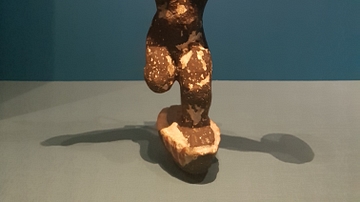
Image
Statue Of Bes
Statue of Bes. Probably late 18th Dynasty, about 1300 BCE. Said to be from Akhmim, Egypt. From The British Museum, (photo taken at The Powerhouse Museum, Sydney, Australia) Several gods were associated with music, including Bes, the protector...
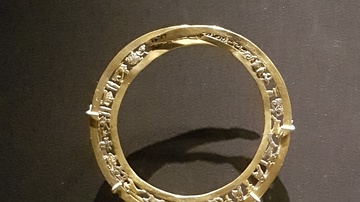
Image
Egyptian Gold & Silver Bangle
Egyptian gold and silver bangle. Middle Kingdom of Egypt, c. 2055-1650 BCE. This bangle is decorated with alternating animal and amuletic motifs. They all have protective meanings: a snake seizes a turtle, a symbol of evil; the seated baboons...
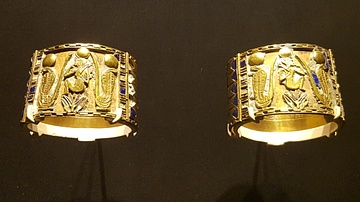
Image
Egyptian Gold Bracelets
Egyptian inlaid gold bracelets belonging to Prince Nimlot, one of the sons of Sheshonq I, the first king of the 22nd Dynasty. About 940 BCE. Said to be from Sa el-Haggar (Sais), Egypt. From The British Museum, (photo taken at The Powerhouse...
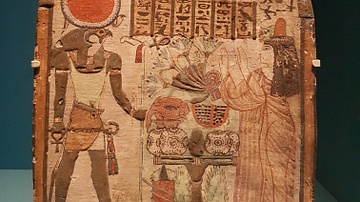
Image
Funerary Stela of Deniuenkhonsu
Wooden funerary stela of Deniuenkhonsu, Singer of Amun-Ra. 22nd Dynasty, about 800 BCE. Probably from Thebes, Egypt. The British Museum, (photo taken at The Powerhouse Museum, Sydney, Australia) Deniuenkhonsu is wearing a semi-transparent...